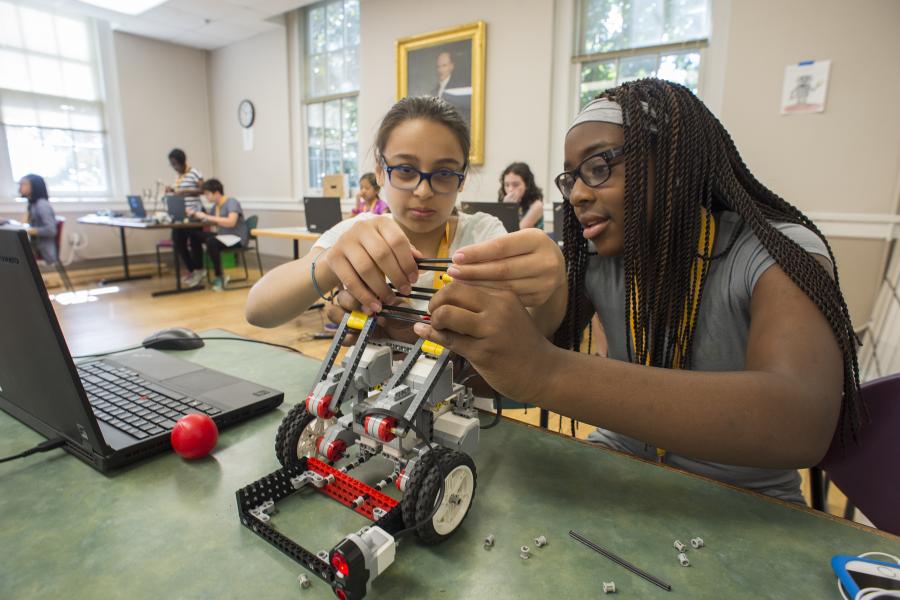Parents and caregivers lining up summer camps and other opportunities to occupy their kids when school is out have one more thing to consider as they plan: novelty.
Recent research from the Johns Hopkins Center for Talented Youth has found that new academic content and novel learning approaches and delivery are essential to engaging and challenging bright students through out-of-school learning opportunities. The study was led by Amy Lynne Shelton, executive director of CTY and a professor and former associate dean for research in the Johns Hopkins School of Education, and Sol Bee Jung, who earned her PhD from the School of Education in 2018 before becoming a visiting scholar at CTY in 2019. It was published in Gifted Child Today.
Video credit: Video credit
"Advanced learners are engaged by novelty, and that's important because we know from the cognitive science that being invested, emotionally moved, and engaged strengthens and facilitates learning and is one of the best predictors of academic success," said Shelton, a cognitive neuroscientist whose research background is in cognitive psychology and neuroscience and focuses on spatial skills, individual differences, and mechanisms of learning.
The study used open-ended questions on a program evaluation survey and gauged the perceptions of 205 students in grades 7-11 who participated in a three-week university-based academic summer program operated by CTY Greece on the Anatolia College campus in Thessaloniki, Greece.
The study found that:
- Novelty that successfully engaged students can be reflected in the academic content, such as in courses outside of the standard school curriculum. One example of this is a math course that delves into the theories, formulas, and algorithms underling cryptography.
- New learning approaches were also effective in engaging students. This new spin on learning might be reflected through a college seminar style class or emphasis on facilitated, problem-based, or hands-on learning experiences.
- Where both novel academic content and pedagogical approaches were present, students were most likely to express that they were highly satisfied with their course experience and that their interest in the subject matter had increased significantly.
"Different aspects of novelty in learning may resonate differently with individual students," Shelton said. "That's useful in the ways we might improve both our content and our approach because we often provide courses that you might find in a school, but if we can do it in a way that provides that novel approach, then we can get that extra boost."
Learn more about Shelton's research and get tips for parents and caregivers on finding novelty in their kids' out-of-school opportunities this summer in this recording of a recent CTY event about this topic.
Posted in Politics+Society
Tagged education, center for talented youth, parenting








